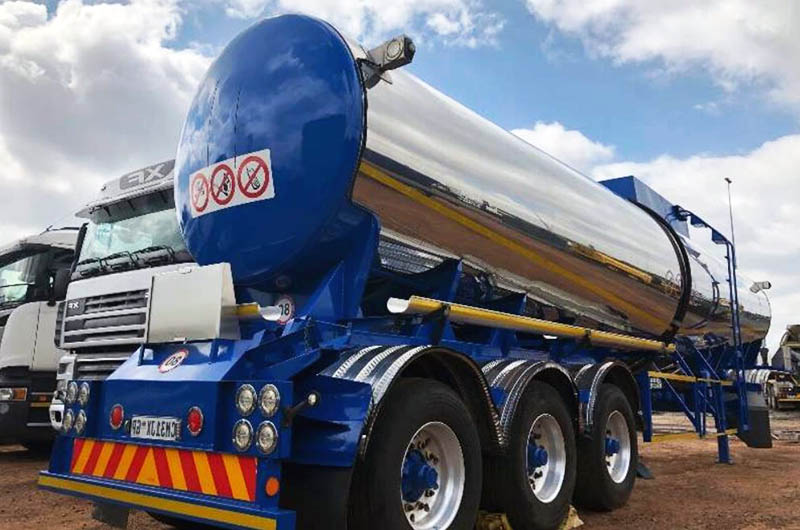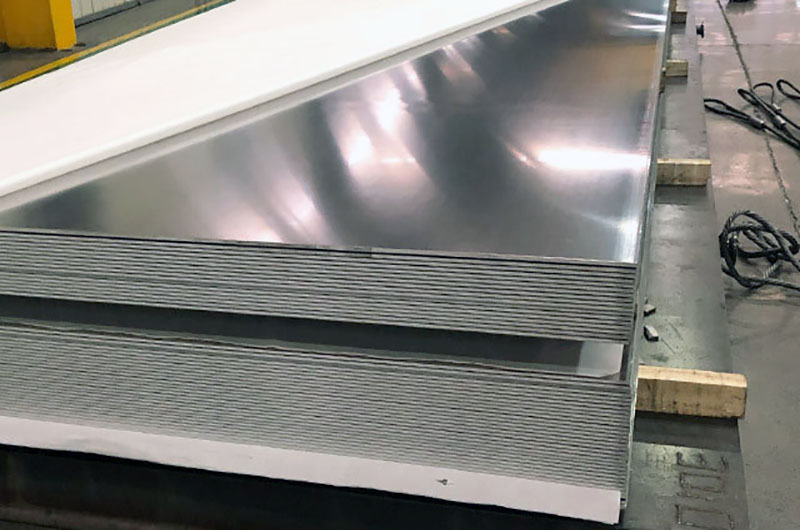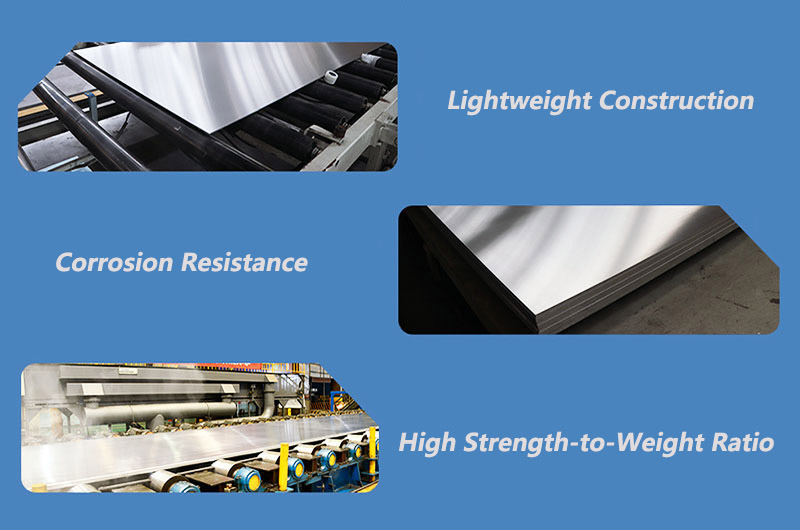- The Evolution of Tanker Trailers
- Which Structures of tanker trailers use aluminum?
- Aluminum Alloys in Tanker Trailers
- Key Applications of Aluminum Tanker Trailers
- Advantages of Aluminum Tanker Trailers
- Challenges and Solutions
- Innovations in Aluminum Tanker Trailer Design
- Environmental Impact and Sustainability
- Regulatory Standards and Safety
- People also ask about Tanker Trailer Aluminum
- Conclusion
"tanker trailer aluminum" refers to the aluminum material used in the construction of the entire tanker trailer, including both the tank and other structural components. On the other hand, "tanker aluminum" is a more specific term that focuses on the aluminum used specifically for the tank body.
The transportation of various liquids and gases is a critical aspect of numerous industries, including oil and gas, chemicals, food and beverage, and more.
In recent years, aluminum tanker trailers have emerged as a preferred choice for safely and efficiently moving these substances.

The Evolution of Tanker Trailers
Traditionally, tanker trailers were predominantly constructed from steel due to its strength and durability. However, advancements in materials science and engineering have paved the way for the widespread adoption of aluminum in the construction of tanker trailers.
Aluminum alloys, with their unique properties, offer a compelling alternative, addressing several challenges associated with steel tankers.
Which Structures of tanker trailers use aluminum?
Aluminum is commonly used in the construction of various structures in tanker trailers due to its advantageous properties, including lightweight design, corrosion resistance, and high strength. The following are some key structures in tanker trailers where aluminum is frequently employed, along with the types of aluminum alloys commonly used for each:
Aluminum Plate for Tank Body
Aluminum Alloy: Commonly used alloys for the tank barrel include 5083, 5454, 5182, and 5754. These alloys provide a combination of corrosion resistance, strength, and formability, making them suitable for holding a wide range of liquids, including chemicals, fuels, water, and food products.
Frame and Chassis
Aluminum Alloy: 6061 and 5052 are often used for the frame and chassis of tanker trailers. These alloys offer a good balance of strength and weight savings, contributing to the overall lightweight design of the trailer. This is particularly important for improving fuel efficiency and payload capacity.
Aluminum Plate for Bulkheads and Baffles
Aluminum Alloy: Bulkheads and baffles are crucial components in tanker trailers to control the movement of liquids during transportation. Alloys such as 5052 and 5182 are commonly chosen for these components due to their strength, corrosion resistance, and weldability.
Manholes and Access Ports
Aluminum Alloy: For components like manholes and access ports, where a combination of formability and corrosion resistance is essential, alloys like 3003 and 5052 are commonly used. These alloys are easily formable and can withstand exposure to various environmental conditions.
Aluminum Plate for Walkways and Catwalks
Aluminum Alloy: Walkways and catwalks on top of tanker trailers are often made from aluminum to provide a durable and corrosion-resistant surface for operators. Alloys such as 6061 and 5052 are commonly chosen for these structures due to their strength and resistance to atmospheric corrosion.
Aluminum Plate for Fenders and Mud Flaps
Aluminum Alloy: Fenders and mud flaps on tanker trailers are frequently made from aluminum alloys like 5052. Aluminum provides a lightweight solution that is also resistant to corrosion, making it suitable for these external components.
It's important to note that the specific alloy chosen for each structure depends on the requirements of the application, considering factors such as the type of cargo, environmental conditions, and regulations governing the transportation of hazardous materials.
The selection is often a careful balance between the desired properties of the alloy and the practical considerations of the tanker trailer's intended use.
Aluminum Alloys in Tanker Trailers
One of the critical factors contributing to the success of aluminum tanker trailers is the choice of suitable aluminum alloys. Different industries and applications require specific alloy characteristics. Common alloys like 5083, 5454, 6061, 3003, and 5052 are carefully selected based on their mechanical properties, corrosion resistance, and weldability, ensuring optimal performance in diverse scenarios.
Certainly! Here's an introduction to the application of each mentioned aluminum alloy in tanker trailers:
5083 Aluminum Alloys for Tanker Trailers
Application: 5083 is often used in tanker trailers for transporting liquids such as chemicals and fuels. Its excellent corrosion resistance makes it suitable for applications where the trailer comes into contact with corrosive substances. Additionally, 5083 has good weldability, ensuring that the tanker can be constructed with strong and durable joints.

5454 Aluminum Alloys for Tanker Trailers
Application: 5454 is commonly employed in tanker trailers for the transportation of liquids, especially in applications where a high level of strength is required. Its strength and corrosion resistance make it suitable for carrying a variety of liquids, including water, chemicals, and industrial fluids.
5182 Aluminum Alloys for Tanker Trailers
Application: 5182 is often used in the construction of tanker trailers designed for the transportation of non-corrosive liquids and liquefied gases. It is known for its high resistance to seawater corrosion, making it a suitable choice for trailers that may be exposed to challenging environmental conditions.
5754 Aluminum Alloys for Tanker Trailers
Application: 5754 is commonly used in tanker trailers that transport liquids such as milk, water, and food products. Its corrosion resistance, combined with its formability, makes it an ideal choice for trailers involved in the food and beverage industry. The alloy is also known for its high fatigue strength.
6061 Aluminum Alloys for Tanker Trailers
Application: 6061 is utilized in tanker trailers that require a combination of strength and lightweight design. It is often chosen for applications where the trailer needs to withstand heavy loads while keeping the overall weight as low as possible. This alloy is well-regarded for its good corrosion resistance and weldability.
3003 Aluminum Alloys for Tanker Trailers
Application: 3003 is commonly used in tanker trailers for general-purpose applications. It is suitable for transporting a wide range of non-corrosive liquids and is chosen for its good formability and moderate strength. This alloy is often used in situations where a balance between cost and performance is crucial.
5052 Aluminum Alloys for Tanker Trailers
Application: 5052 is widely employed in tanker trailers for transporting a variety of liquids, including oil and chemicals. It offers a good combination of strength, formability, and corrosion resistance. 5052 is often chosen for applications where a versatile alloy with a broad range of characteristics is required.
In summary, the selection of a specific aluminum alloy for a tanker trailer depends on the intended application, the type of liquids to be transported, and the environmental conditions the trailer may encounter. Each alloy brings its unique set of properties, ensuring optimal performance in diverse scenarios within the transportation industry.
Key Applications of Aluminum Tanker Trailers
| Application | Key Benefits |
|---|---|
| Oil and Gas Industry | - Corrosion resistance is essential for transporting corrosive substances. |
| Chemical Transportation | - Resistance to corrosion maintains the structural soundness of the tanker. |
| Food and Beverage Industry |
- Corrosion resistance ensures the integrity of transported food-grade liquids. - Ease of cleaning contributes to maintaining hygiene standards. |
| Cryogenic Transport | - High thermal conductivity helps maintain low temperatures required for cryogenic substances. |
| Water and Wastewater Transport | - Corrosion resistance ensures longevity and prevents contamination. |
Advantages of Aluminum Tanker Trailers
1. Lightweight Construction
One of the primary advantages of aluminum tanker trailers is their lightweight construction. Compared to traditional steel tankers, aluminum trailers offer a significant reduction in weight, leading to increased payload capacity and improved fuel efficiency.
2. Corrosion Resistance
The corrosion resistance of aluminum is a standout feature, making it particularly suitable for transporting corrosive substances. This property enhances the lifespan of the tanker and reduces maintenance costs over time.
3. High Strength-to-Weight Ratio
Aluminum alloys used in tanker trailers provide an excellent strength-to-weight ratio. This ensures that the trailers can withstand the rigors of transportation while remaining lightweight, contributing to improved overall performance.

4. Thermal Conductivity
In applications involving cryogenic substances, the high thermal conductivity of aluminum is a crucial advantage. It aids in maintaining the low temperatures required for the safe transport of liquids like liquid nitrogen and LNG.
5. Formability and Weldability
Aluminum's formability and weldability allow for intricate designs and efficient manufacturing processes. This flexibility in construction contributes to the development of tanker trailers tailored to specific industry needs.
Challenges and Solutions
While aluminum tanker trailers offer numerous advantages, they are not without challenges. One notable concern is the initial cost, as aluminum can be more expensive than steel. However, the long-term benefits, including reduced maintenance costs and improved fuel efficiency, often outweigh the initial investment.
Additionally, aluminum is more susceptible to dents and scratches compared to steel. However, advancements in protective coatings and manufacturing techniques are addressing these issues, ensuring the durability and aesthetics of aluminum tanker trailers.
Innovations in Aluminum Tanker Trailer Design
As the demand for aluminum tanker trailers continues to rise, manufacturers are investing in innovative designs and technologies to enhance performance and safety. This includes the incorporation of advanced monitoring systems, improved loading and unloading mechanisms, and the integration of smart technologies for real-time tracking and maintenance diagnostics.
Environmental Impact and Sustainability
The lightweight nature of aluminum tanker trailers contributes to reduced fuel consumption and lower carbon emissions. This aligns with the growing emphasis on sustainability in the transportation industry. Additionally, aluminum is highly recyclable, further minimizing its environmental footprint and promoting a more circular economy.
Regulatory Standards and Safety
The design and construction of tanker trailers, regardless of the material used, are subject to stringent regulatory standards to ensure safety in transportation. Aluminum tanker trailers must comply with industry-specific regulations and undergo rigorous testing to meet safety standards, including those related to structural integrity, leak prevention, and hazardous material transport.
People also ask about Tanker Trailer Aluminum
- tanker steel trailer
- tank trailer manufacturers
- dry bulk trailer manufacturers
- How much does a tanker trailer cost?
- What material is tanker trailer?
- How heavy is a tanker trailer?
- Do all tanker trailers carry liquid?
Conclusion
Aluminum tanker trailers have become indispensable in the transportation of liquids and gases across various industries.
Their lightweight construction, corrosion resistance, and versatility make them a preferred choice for applications ranging from oil and gas transport to the delivery of food-grade liquids.
Despite certain challenges, ongoing innovations and a commitment to sustainability position aluminum tanker trailers as key players in the evolving landscape of industrial transport. As technology continues to advance, the future holds exciting possibilities for further improvements in design, efficiency, and safety in the realm of aluminum tanker trailers.
